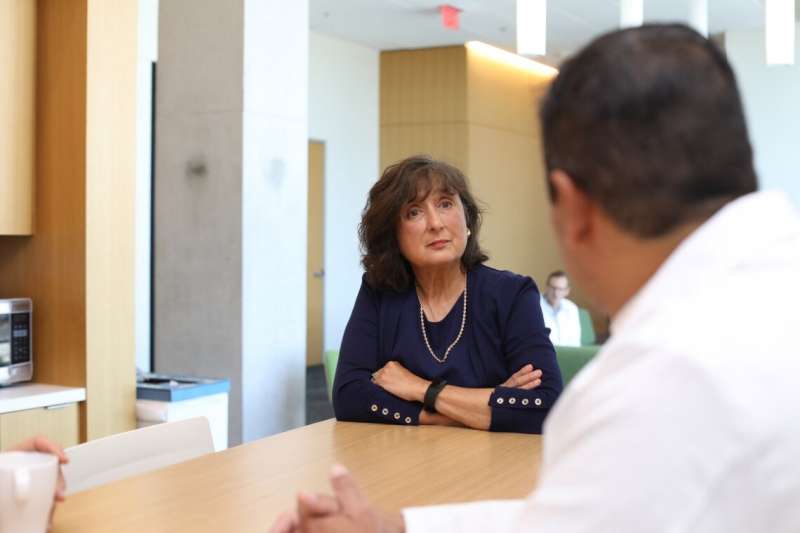

University of Arizona researchers have developed a new therapy for Alzheimer’s disease designed to restore cognitive function in early-stage patients. The therapy is now proceeding through a Phase 2b clinical trial.
Phase 2b trials involve rigorous testing for efficacy in groups of 100 to 300 patients.
The team, led by Roberta Diaz Brinton, director of the UArizona Health Sciences Center for Innovation in Brain Science and a member of the BIO5 Institute, found that the neurosteroid allopregnanolone, or allo, used to treat women with postpartum depression, promotes connectivity between neural networks required for cognitive function by generating new neurons and synapses in patients in the early stages of Alzheimer’s disease.
Working with Tech Launch Arizona, the office that commercializes inventions stemming from UArizona research, the team has launched a startup, NeuTherapeutics Inc., to advance the technology toward making it available for patients.
“Starting up NeuTherapeutics is so exciting because we are creating the path to bring the first regenerative therapeutic for Alzheimer’s disease to those who need it. We believe that treatment with allo will restore brain function and independence for patients,” said Brinton, a Regents Professor of pharmacology and neurology. “Regenerating the brain means regenerating a life.”
The UArizona drug development team recently launched the Phase 2b trial after securing more than $37 million in funding from the National Institute of Aging and approval from the U.S. Food and Drug Administration. This trial follows a successful three-month Phase 1b/2a trial, which developed an optimal treatment regimen and dose, and monitored patient progress through MRI brain imaging and blood tests.
“We are encouraged that the MRI brain imaging provided early evidence of a regenerative response in Alzheimer’s patients treated with allo, confirming years of pre-clinical data. Importantly, the Phase 1 data indicated a strong safety profile while demonstrating none of the brain bleeds associated with recently approved Alzheimer’s treatments,” said Brinton. “These early findings led to our REGEN-BRAIN Phase 2 clinical trial for 200 Alzheimer’s patients, which is currently enrolling participants.”
Approved as safe for medical use in 2019, allo is a naturally produced steroid that has been used in high doses to treat postpartum depression, a mood disorder that can affect women after giving birth. To promote regeneration in the Alzheimer’s brain, the medication is delivered at a low dose once a week.
“It’s great to be working with a molecule with a strong safety record since it will speed our pathway to FDA approval. Importantly, our method of use does not require the long hospital stay associated with the postpartum treatment,” Brinton said.
NeuTherapeutics is currently developing novel allo formulations and delivery strategies that will ensure that treatment is easy, efficient and affordable, while also following up on preclinical data that suggest that it may be effective in treating other neurodegenerative diseases such as Parkinson’s disease.
“We’re excited to have had the opportunity to work with Dr. Brinton to develop this technology and work through the commercialization process with her and the NeuTherapeutics team,” said Rakhi Gibbons, director of licensing for Tech Launch Arizona. “This is a critical step toward real-world impact for patients afflicted with Alzheimer’s and their caregivers.”
Source: Read Full Article